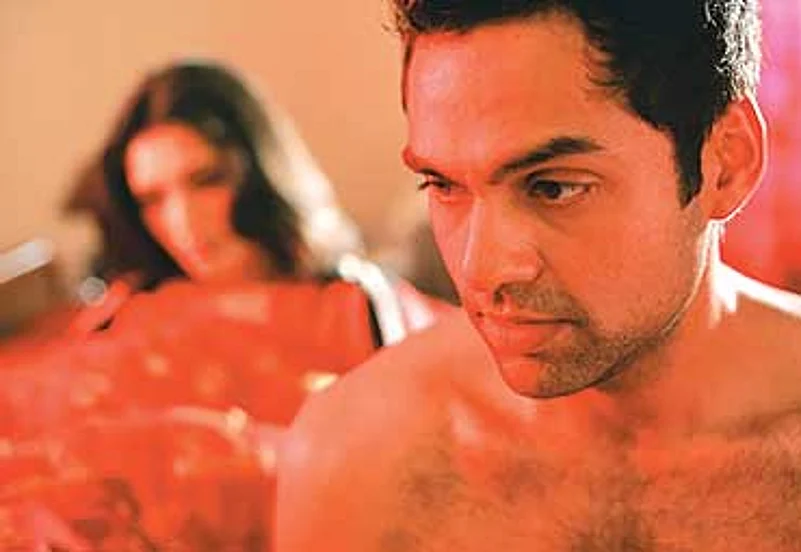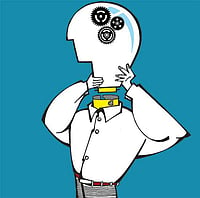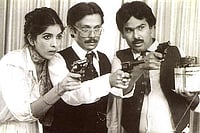
Abhay Deol in Dev D
I found it reprehensible that Paro was forced to live in such a cloistered world that the only man she was allowed to fantasise about was this idiot. Her choice, due to a lack of other choices, was understandable, but I couldn't for the life of me understand Chandramukhi's yearning. She symbolised to me the few relatively independent women of that time; surely she could have found a better representative of the male species.

Shahrukh hugs the bottle in Bhansali’s Devdas
Like Sanjay Leela Bhansali's Devdas, my grandfather too went to England in the 1940s. By the time he came back, he had discovered both sense and sensuality and, therefore, he promptly dumped his Paro (my grandmother) and married his Chandramukhi (a singer).
And what did Devdas do? He tortured both of them! He constantly made Paro feel guilty about the sofas in her house by falling around in gutters, and insulted Chandramukhi for being who she was.
I loved my grandmother, and was aware of the pain grandfather caused my father and his brothers. It must have been humiliating in those hypocritical times to have your father walk past on a Lucknow street with another woman.
But at least my grandfather went the whole hog. He had the courage to marry and accept the independent spirit of the singer, and the fall from grace in the eyes of his own world. Suddenly, he was transformed from being a good Brahmin boy who exercised self-restraint when the urge came upon him, to a debauched sensualist. My grandfather, whispered some elders to me, could have been a hero were it not for this fatal flaw.

Dilip Kumar, Vyjanthimala in Bimal Roy’s ’55 version
I rejected this notion as I was growing up in the late 1970s and '80s, rampaging through life, oblivious to the hurt I caused. That silly pop song, It's my life, played in my head and in those of most of my friends. It was only 25 years later that I realised the devastation we had caused. And that's when I understood Devdas.
Don't get me wrong, I still prefer Chandramukhi to Paro. But that doesn't obliterate the fact that I and my friends betrayed our Paros. Which is what Devdas didn't do! That's why he is fascinating, or at least intriguing, to many. He could have had a great life without Paro, but once he realised that he, through his own foolishness, had condemned her to a life of misery, he clamped down on himself.
Maybe the fascination with Devdas stems from the fact that he denies himself the life he could have in the sensual lap of Chandramukhi. Maybe she represents another life and choice that most people make when they leave their homes, their friends and Paros behind. Most people move on and carry the regret all their lives.
But wait! There is a minor flaw in the argument!
The majority are not Devdases. They are Paros.
The majority of people are not the betrayers but the betrayed!
And who betrays? Those that have power and, therefore, a choice.
That's why the majority perhaps is fascinated by those who die for the one they love. If you extend this argument, the majority worship those that die for them. Because they are themselves trapped by the bonds of customs, religions, obligations, traditions.
The majority are, in a sense, Paros afraid of being Chandramukhis. The majority would hate Devdas if he opted for Chandramukhi. And since Sarat Chandra was a popular writer, he respected their feelings.
That's why Devdas did not walk into the sunset with Chandramukhi but died at Paro's door.
But now, perhaps we are growing up. Therefore, in Anurag Kashyap's version, Dev D, Paro tells Devdas that he is a piece of turd and that she no longer needs him to die for her. She is still not becoming Chandramukhi, but at least she is rejecting Devdas, who was once her hero.
So maybe the fascination with Devdas is on its way out....

























